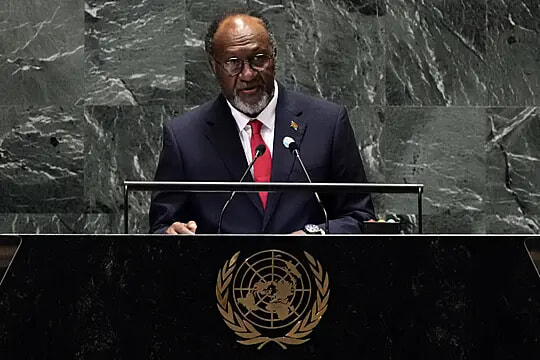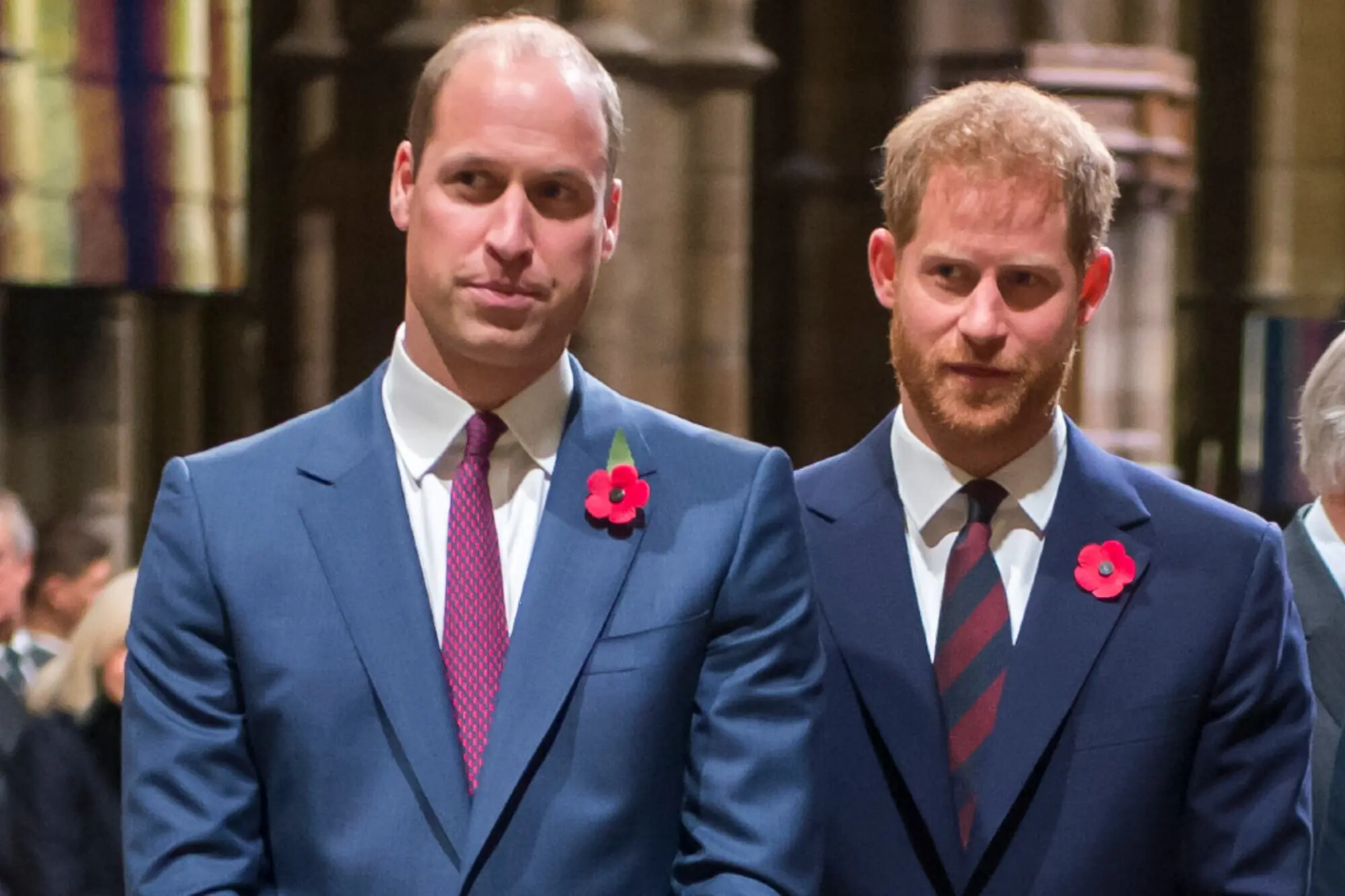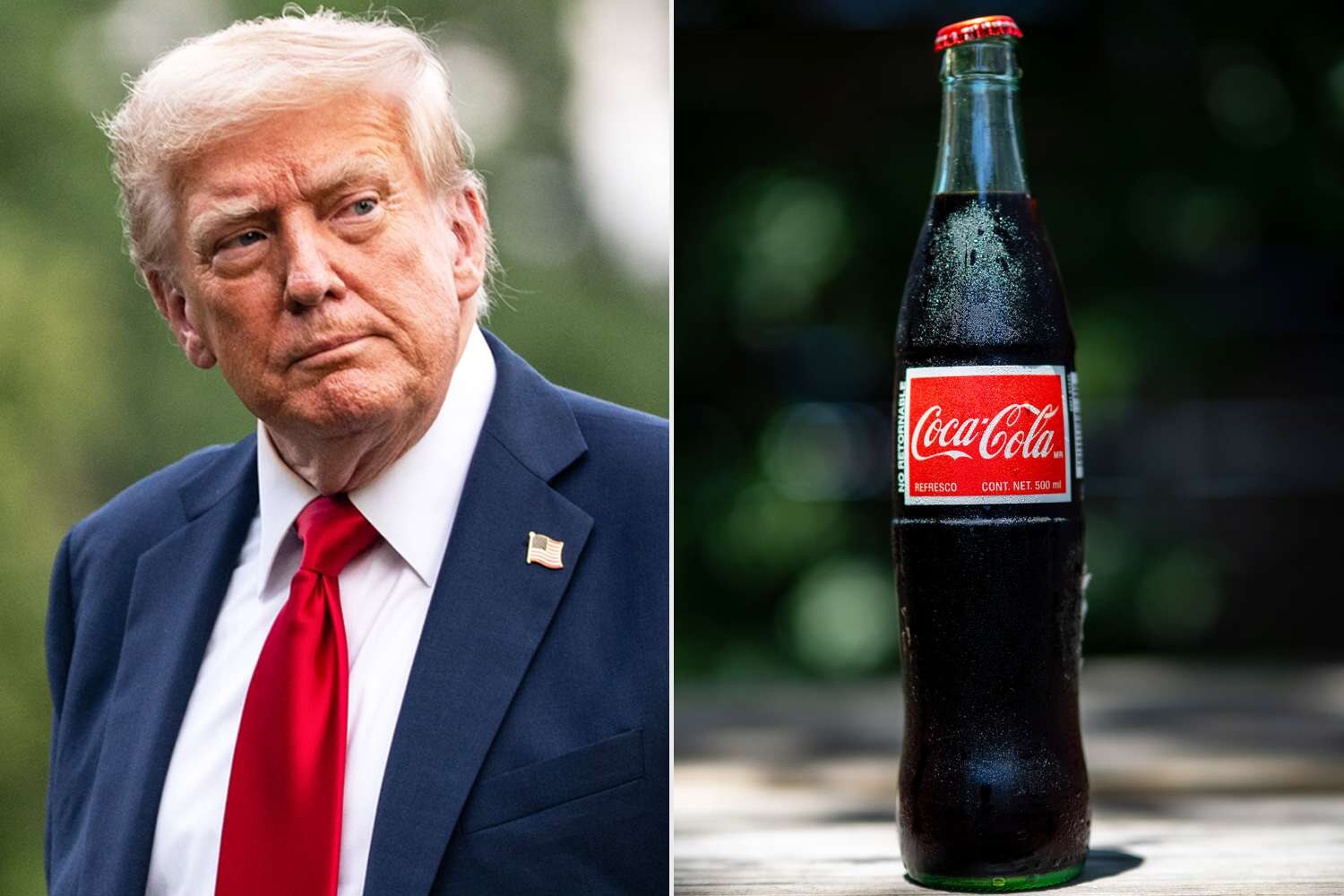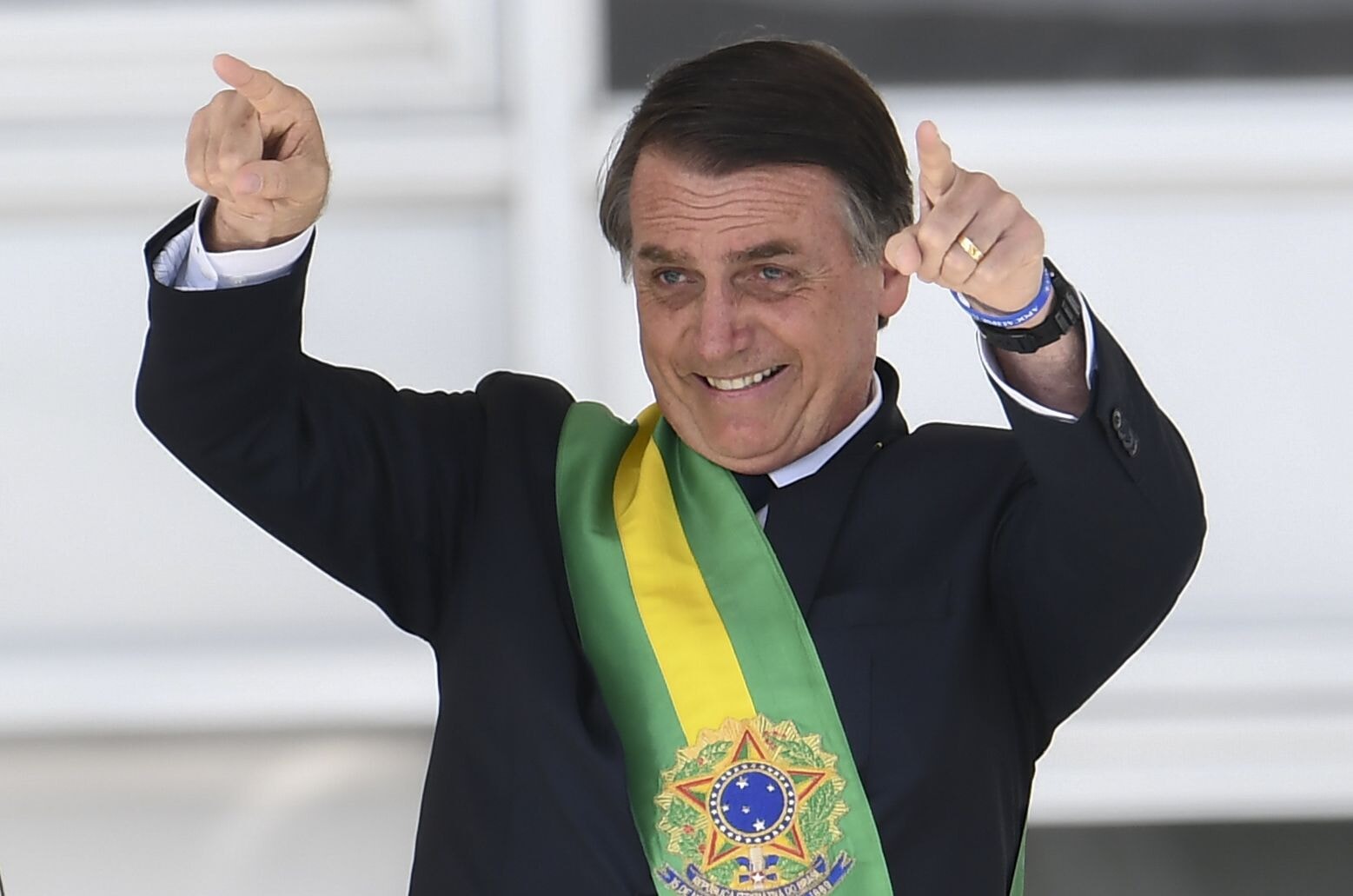
Police Raid Jair "Trump-of-the-Tropics" Bolsonaro's Home & Shackle Him With Ankle Monitor
This is wild.
Published July 29, 2025
Advertisement
Advertisement
1. Storm at Dawn

The streets of Brasília stirred before sunrise as federal police swept past cameras and journalists, their mission clear but their target hidden behind a curtain of secrecy.Within hours, the world learned that former Brazilian President Jair Bolsonaro was at the center of an extraordinary legal drama that had captivated both his nation and the globe.It was a scene that defied Brazil’s democratic traditions—search warrants for a former president, police vehicles crowding his home, and a looming sense of crisis in the country’s capital.For years, Bolsonaro had been a towering figure in Latin American politics, a symbol of hard-right populism who cultivated deep ties with leaders abroad, especially Donald Trump.But with his term over and his party’s influence fading, his critics and supporters alike wondered what path he would choose after losing the 2022 election to leftist rival Luiz Inácio Lula da Silva.That question grew more urgent as prosecutors pressed ahead with a sprawling investigation into his alleged efforts to overturn the will of Brazilian voters.Behind the drama were whispers of a wider conspiracy, with Bolsonaro accused not just of defying the courts, but of trying to involve powerful friends across the ocean.Supporters rallied at the gates of his headquarters, waving signs and chanting slogans, while his critics waited for justice to run its course.The question hung in the air: was this the downfall of a strongman or a test for Brazilian democracy?No matter the answer, the stage was set for a showdown that would stretch far beyond the borders of Brazil.Before the sun fully rose, the entire world was watching.
Advertisement
2. Chains of Power
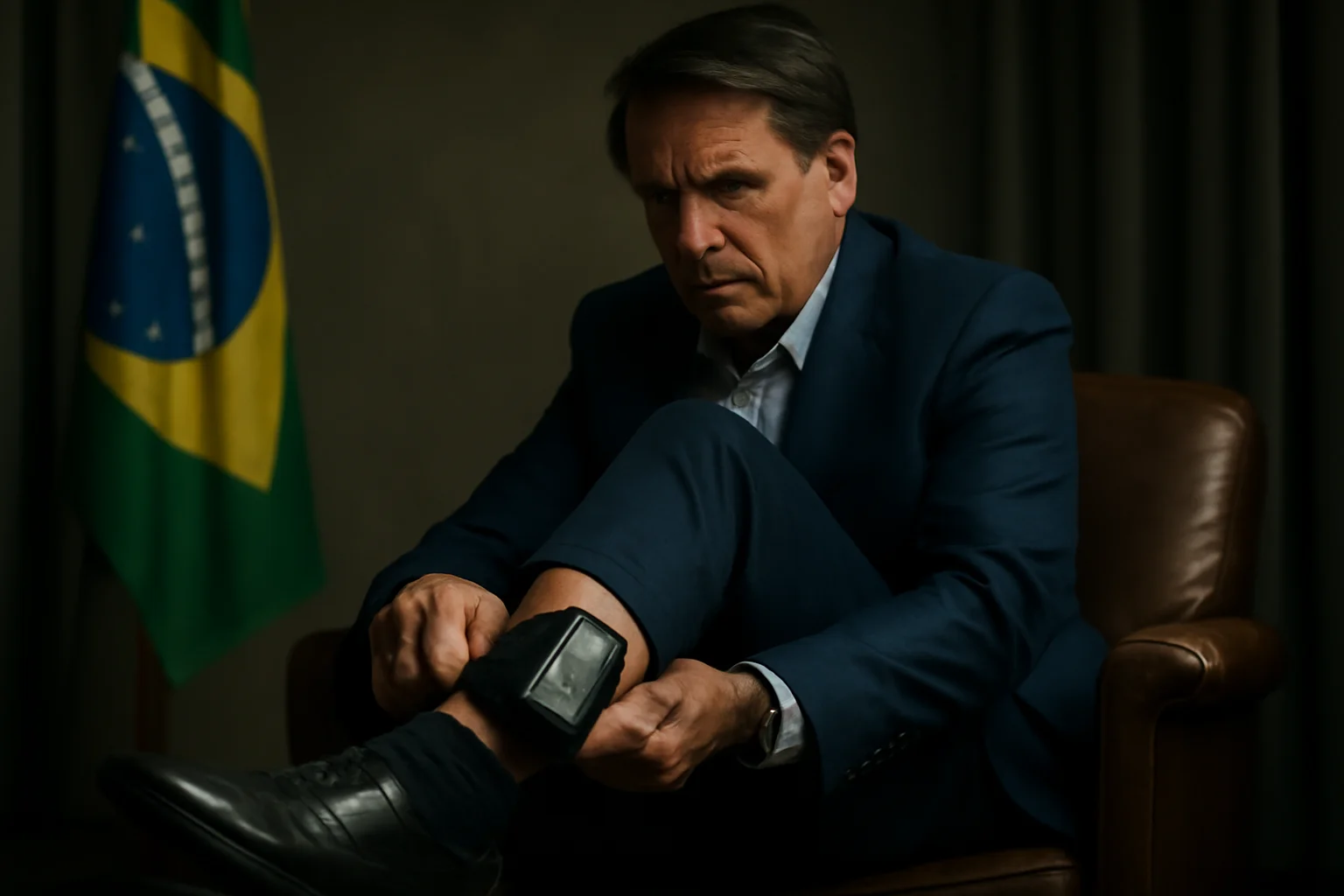
The Supreme Court’s ruling was swift and unyielding: Bolsonaro would be fitted with an electronic ankle monitor, a restriction that underscored his sudden vulnerability.Gone was the aura of invincibility, replaced by curfews, police scrutiny, and a list of prohibitions that reached deep into his political and personal life.He was barred from contacting foreign officials, forbidden from setting foot in any embassy, and prohibited from speaking to his own son, Eduardo, who had become his chief defender in Washington.Bolsonaro’s press office confirmed the restrictions as live aerial footage showed police vehicles encircling his home and party headquarters.Media outlets from São Paulo to London covered the spectacle, reporting on each new legal measure and speculating about the fate of the once-powerful leader.Judge Alexandre de Moraes, the architect of the court’s crackdown, cited a “concrete possibility” that Bolsonaro might flee the country, justifying the need for round-the-clock surveillance.For many, the image of a former president tethered to a tracking device symbolized the gravity of the allegations against him and the resolve of Brazil’s judiciary.Supporters decried the move as an act of political vengeance, while critics called it a victory for the rule of law.The restrictions, though severe, were only the beginning, signaling a new chapter of public humiliation and judicial confrontation.Bolsonaro himself described the experience as “supreme humiliation,” vowing to fight back against what he called “grave and baseless” accusations.The drama of power, pride, and accountability was playing out in real time, with each hour bringing new revelations.
Advertisement
3. Allies, Adversaries, and the Shadow of Trump
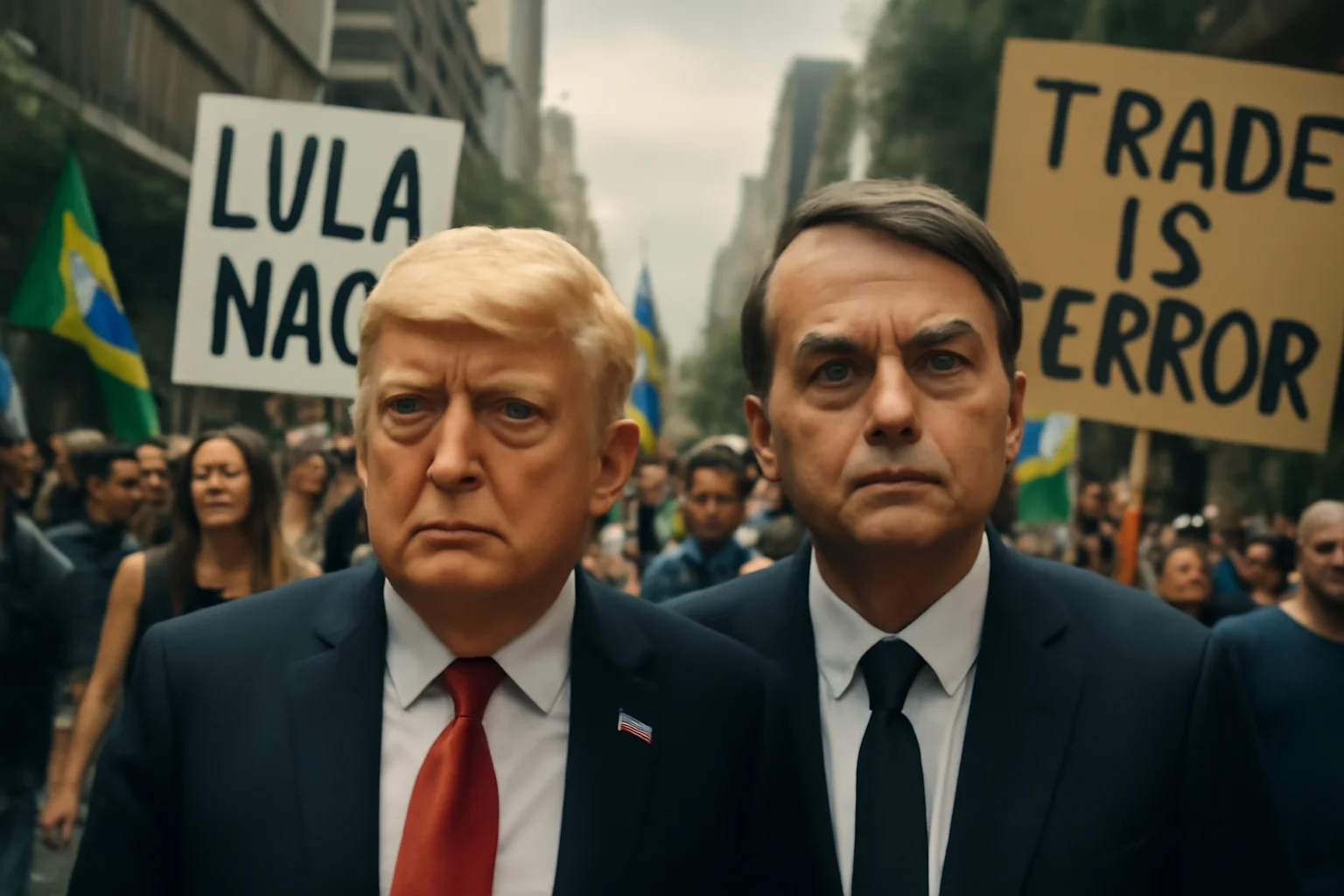
As the legal net tightened around Bolsonaro, a new player stepped onto the stage: Donald Trump.The U.S. president’s intervention was as direct as it was unprecedented—an open letter, posted on Truth Social, blasting the Brazilian justice system and tying Bolsonaro’s fate to the larger struggle of populist leaders facing prosecution.Trump’s message was clear: the trial was a “witch hunt,” a phrase familiar to anyone following the American political theater of recent years.He announced a punitive 50% tariff on all Brazilian goods, a threat delivered with the explicit intent of forcing Brazil’s hand and halting the case against his ally.The tariffs, set to take effect on August 1, stunned both economic experts and politicians, upending decades of trade relations and thrusting the drama onto the global stage.For Brazil’s President Lula, the move was an affront to national sovereignty, prompting fiery speeches and warnings of reciprocal measures.While Bolsonaro thanked Trump with “eternal gratitude,” posting videos and statements of support, Lula insisted that his government would not bow to foreign pressure.Diplomats scrambled to contain the fallout as financial markets reeled and protestors donned Trump and Bolsonaro masks in cities across Brazil.The world watched as Washington and Brasília traded accusations, the fate of one man now entangled with international commerce and diplomatic brinkmanship.Bolsonaro’s son, Eduardo, remained in the U.S., lobbying for his father while facing his own legal scrutiny back home.At every turn, personal ambition collided with national interest, turning a domestic trial into an international showdown.
Advertisement
4. The Coup Accusations

The heart of the case against Bolsonaro lay in the explosive accusation that he had led a plot to overturn the 2022 election and block Lula’s inauguration.Prosecutors alleged a sweeping conspiracy, implicating not only Bolsonaro but a circle of advisors and family members who had sought to mobilize the military and destabilize the transfer of power.Investigators traced a pattern of secret meetings, encrypted messages, and rallies outside army barracks, where supporters pleaded for intervention.Bolsonaro, for his part, continued to insist on his innocence, calling the idea of a coup “abominable” and maintaining that there had “never been talk of a coup” with military commanders.He had refused to publicly concede defeat, fueling a wave of demonstrations that culminated in the storming of Congress, the Supreme Court, and the presidential palace by his followers just days after Lula took office.Federal police and prosecutors, armed with an 884-page report, claimed to have found damning evidence—a “criminal organization” intent on subverting democracy and launching a coup d’etat.The charges included inciting insurrection, attempting to abolish democratic rule, and plotting violence against key officials.If convicted, Bolsonaro faced decades behind bars, a prospect that electrified his opponents and terrified his loyalists.His legal team expressed “outrage” at the court’s actions, vowing to fight every charge in what they called a battle for Brazil’s future.The trial became a symbol of the nation’s struggle to defend its democratic institutions against internal threats.The tension escalated as each day brought new disclosures and higher stakes for everyone involved.
Advertisement
5. The Humiliation Broadcast
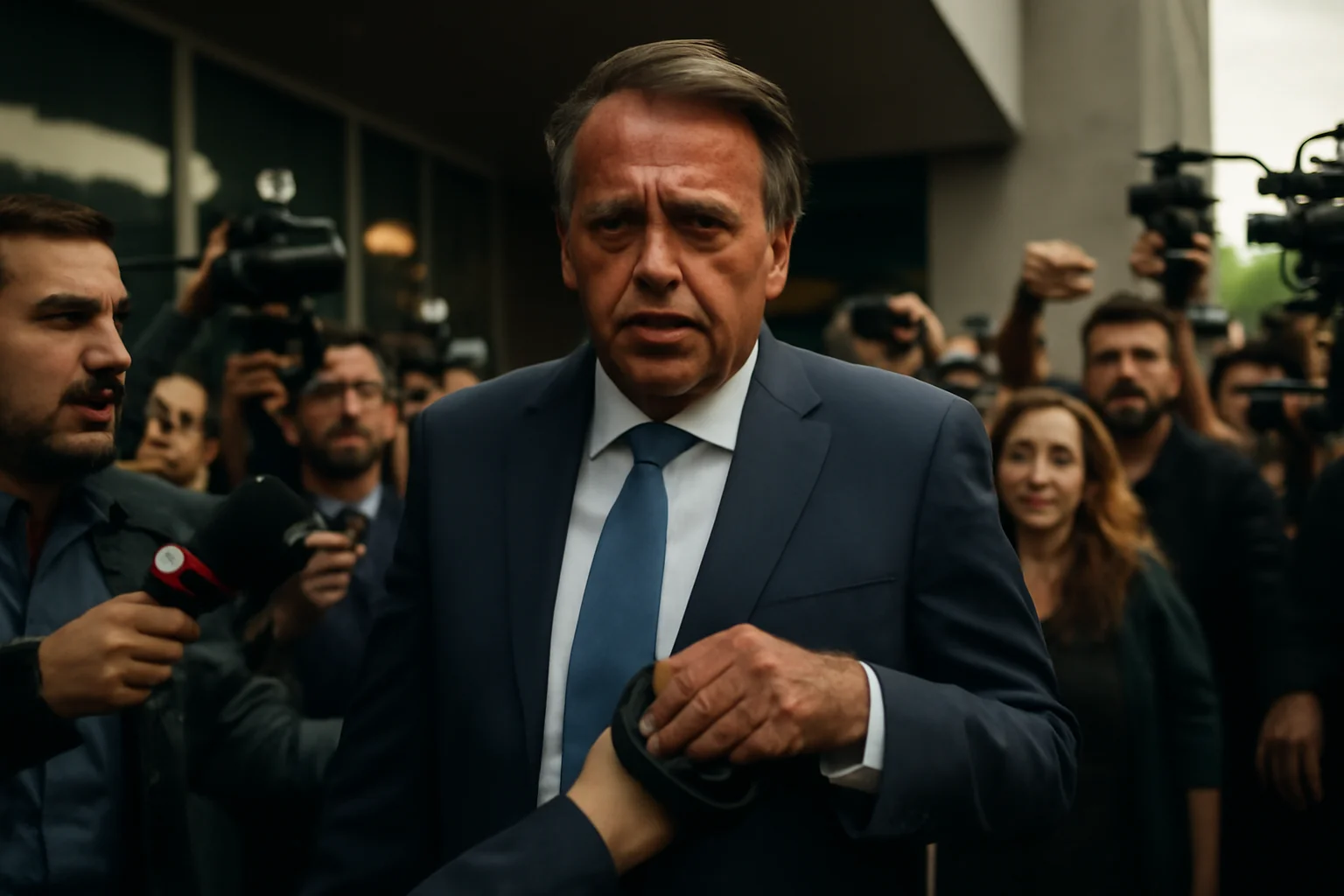
As Bolsonaro emerged from police headquarters, ankle monitor in place, the cameras captured not only the machinery of justice but the raw emotion of a man brought low by his own country.He described his ordeal as “supreme humiliation,” telling journalists that he had “never thought about leaving Brazil” and insisting the restrictions were an overreaction.Surrounded by reporters and supporters, Bolsonaro’s public statements were defiant, even as his legal options narrowed.He denounced the court’s actions as “cowardice” and accused his political enemies of orchestrating his downfall.While legal analysts debated the merits of the case, millions watched live broadcasts and scrolling social feeds, absorbing every gesture and word.For many Brazilians, the spectacle was unprecedented—a former president publicly restrained, his every movement monitored and every word dissected.Social media exploded with hashtags, memes, and partisan commentary, reflecting the country’s deep divisions.Even as his lawyers lodged appeals and filed motions, the practical reality set in: Bolsonaro’s political career was in jeopardy, and the judicial process was moving swiftly.The ankle monitor, intended to ensure compliance, became a symbol of both state authority and the cost of defiance.For the opposition, it was justice; for his followers, it was martyrdom.No matter the lens, Brazil had entered uncharted territory.
Advertisement
6. Lula’s Stand
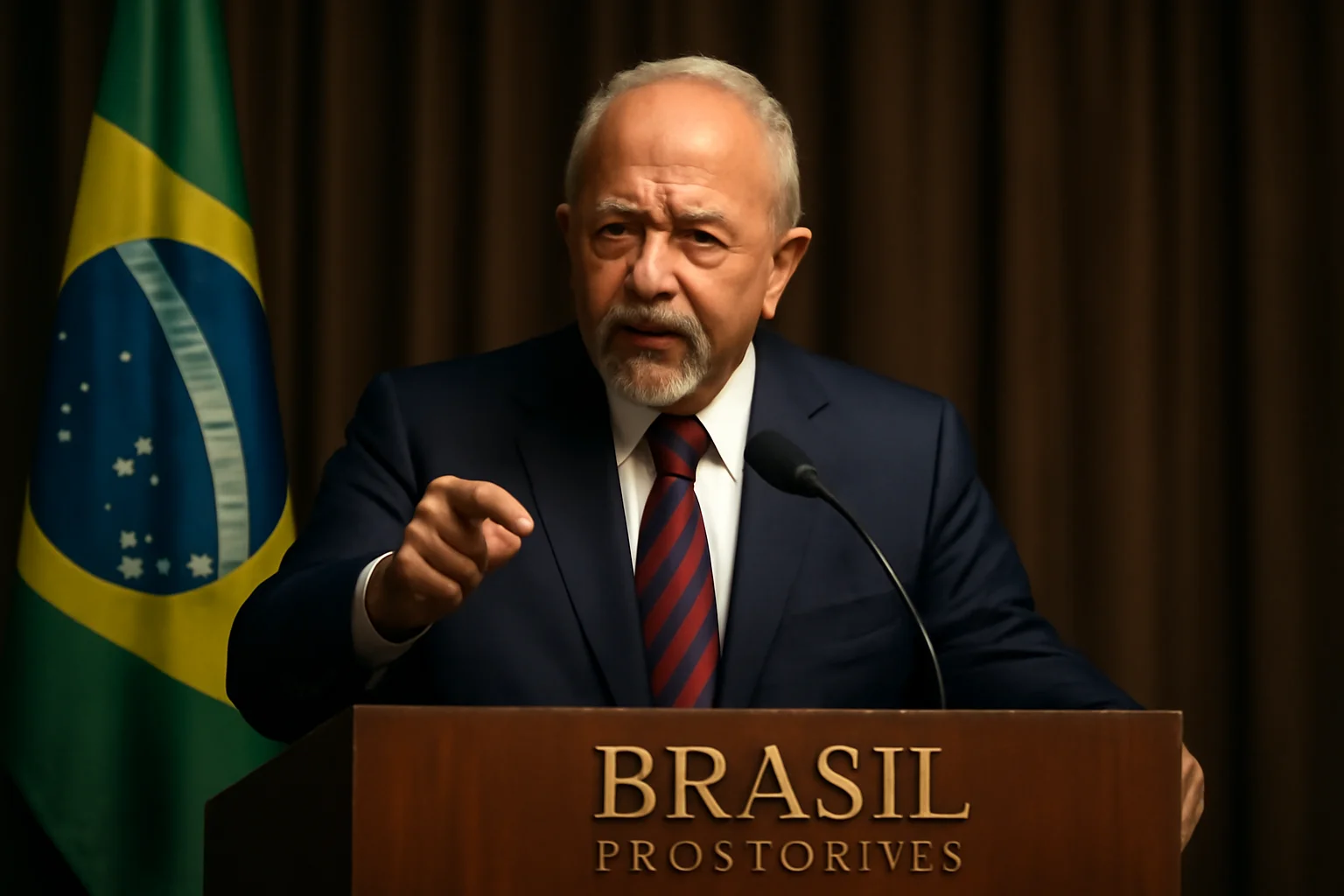
Across town, President Lula addressed the nation, seizing the moment to draw a line between law and loyalty.He condemned Trump’s tariff threats as “unacceptable blackmail,” vowing to match any measures with equal force.In a televised address, Lula insisted that Brazil was a sovereign country with “independent institutions” and that “no one is above the law.”He criticized politicians who sided with Trump, calling them “traitors to the homeland” and demanding unity in the face of foreign interference.Lula’s speech resonated with millions who saw the trial as a litmus test for Brazilian democracy, a chance to prove that no leader could bend the rules without consequence.He reaffirmed his commitment to diplomatic and commercial ties but made clear that the judiciary would not yield to outside pressure.The president’s firm response bolstered his popularity, as polls showed a surge in approval amid the crisis.At the same time, business leaders and economists warned that the escalating trade war could harm both countries, with billions at stake.Behind the rhetoric, negotiations continued, with diplomats working overtime to prevent the dispute from spinning out of control.For Lula, the confrontation was both a challenge and an opportunity—to assert his authority, strengthen institutions, and shape the legacy of his presidency.
Advertisement
7. Global Shockwaves
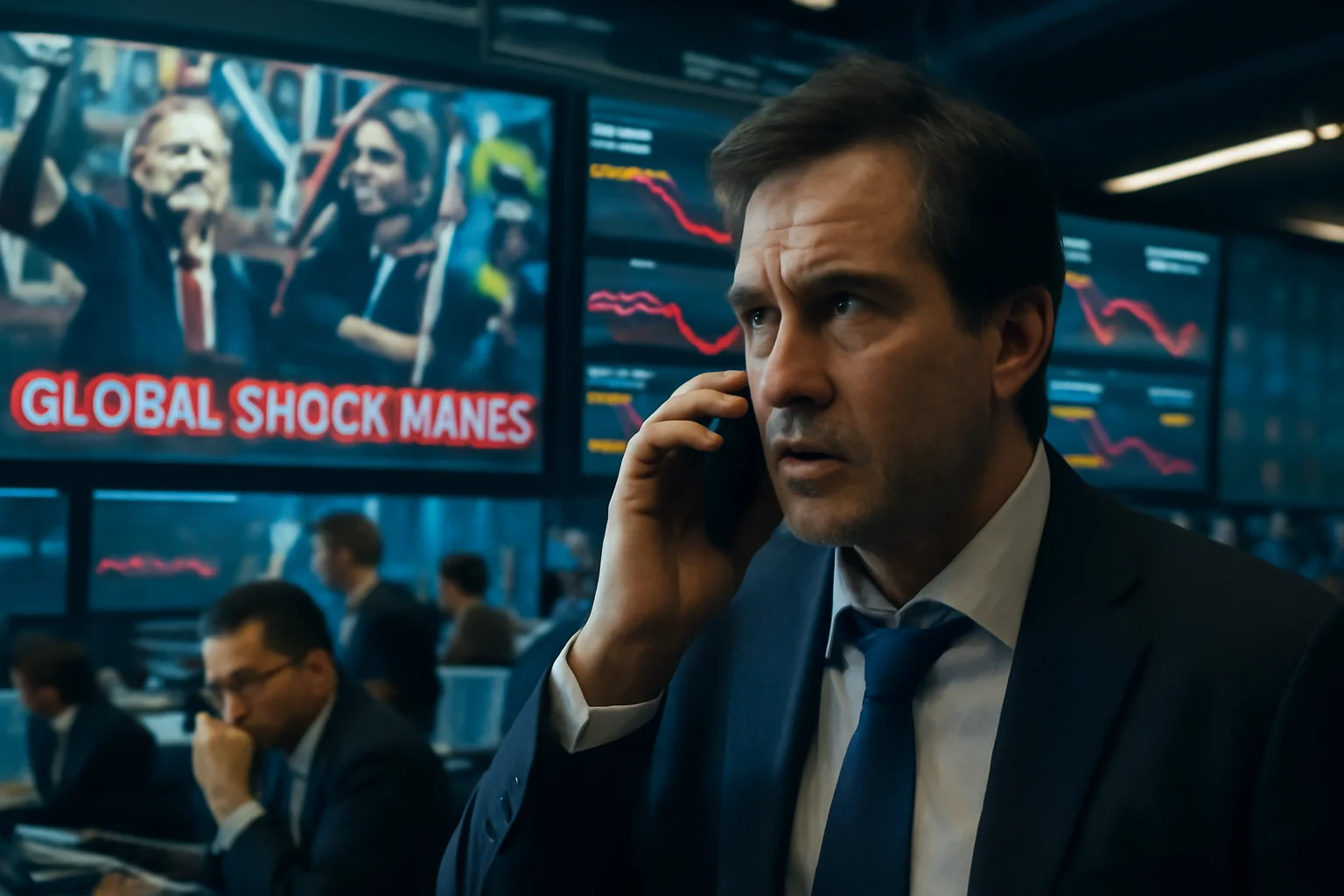
As news of the crackdown spread, governments and financial markets around the world braced for fallout.International media dissected every new development, analyzing the risks for global trade, democratic norms, and the delicate balance of power in the Americas.Trump’s tariff threats marked a departure from traditional diplomacy, signaling a willingness to use economic weapons in pursuit of political goals.Other nations watched warily, wondering if they too could become targets of personal vendettas and tit-for-tat measures.Protests erupted in cities across Brazil, with demonstrators wearing Trump and Bolsonaro masks, waving flags, and chanting slogans against both domestic injustice and foreign intervention.Business leaders scrambled to assess the impact on exports, imports, and jobs, warning that a prolonged conflict could devastate key industries.The European Union, China, and other trade partners weighed in, calling for restraint and warning against escalation.Financial analysts tracked the volatility of the Brazilian real, commodity prices, and stock indices, each swing a reflection of deepening uncertainty.At stake was more than the fate of one politician—it was the credibility of democratic processes in a world increasingly shaped by strongmen and populists.As markets tumbled and tempers flared, the crisis tested the resilience of global institutions and the power of the rule of law.
Advertisement
8. A Nation Divided
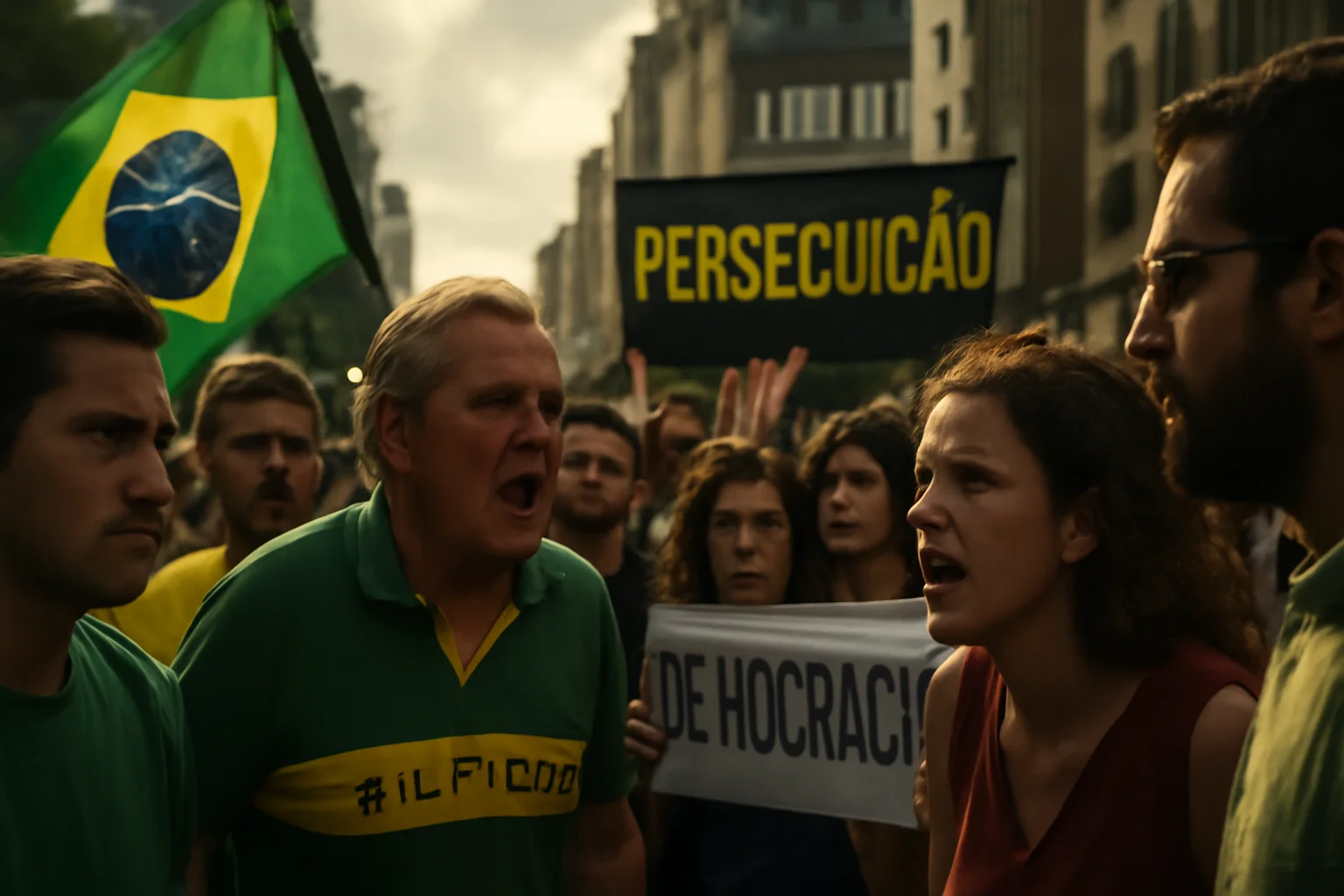
Inside Brazil, the battle lines hardened.Bolsonaro’s supporters decried the investigation as a partisan witch hunt, arguing that the left was using the courts to prevent his return to power in 2026.Conservative lawmakers and party leaders called the raids and restrictions “another chapter in the persecution of right-wing figures,” stoking anger among the political base.Opponents, meanwhile, celebrated the actions as overdue accountability, a necessary reckoning for years of alleged abuses.Legal experts debated the fine points of the case, dissecting evidence and court filings as the trial progressed.In neighborhoods, cafes, and social media feeds, Brazilians argued over whether the country was witnessing the collapse of democracy or its last defense.The issue transcended ideology, touching on questions of trust, legitimacy, and the limits of executive power.At the heart of the debate was the enduring question: could Brazil move past the cycle of polarization and forge a new path, or was it doomed to repeat the conflicts of its recent past?With passions running high and the outcome uncertain, the country teetered on the edge.
Advertisement
9. The Coup Trial Unfolds
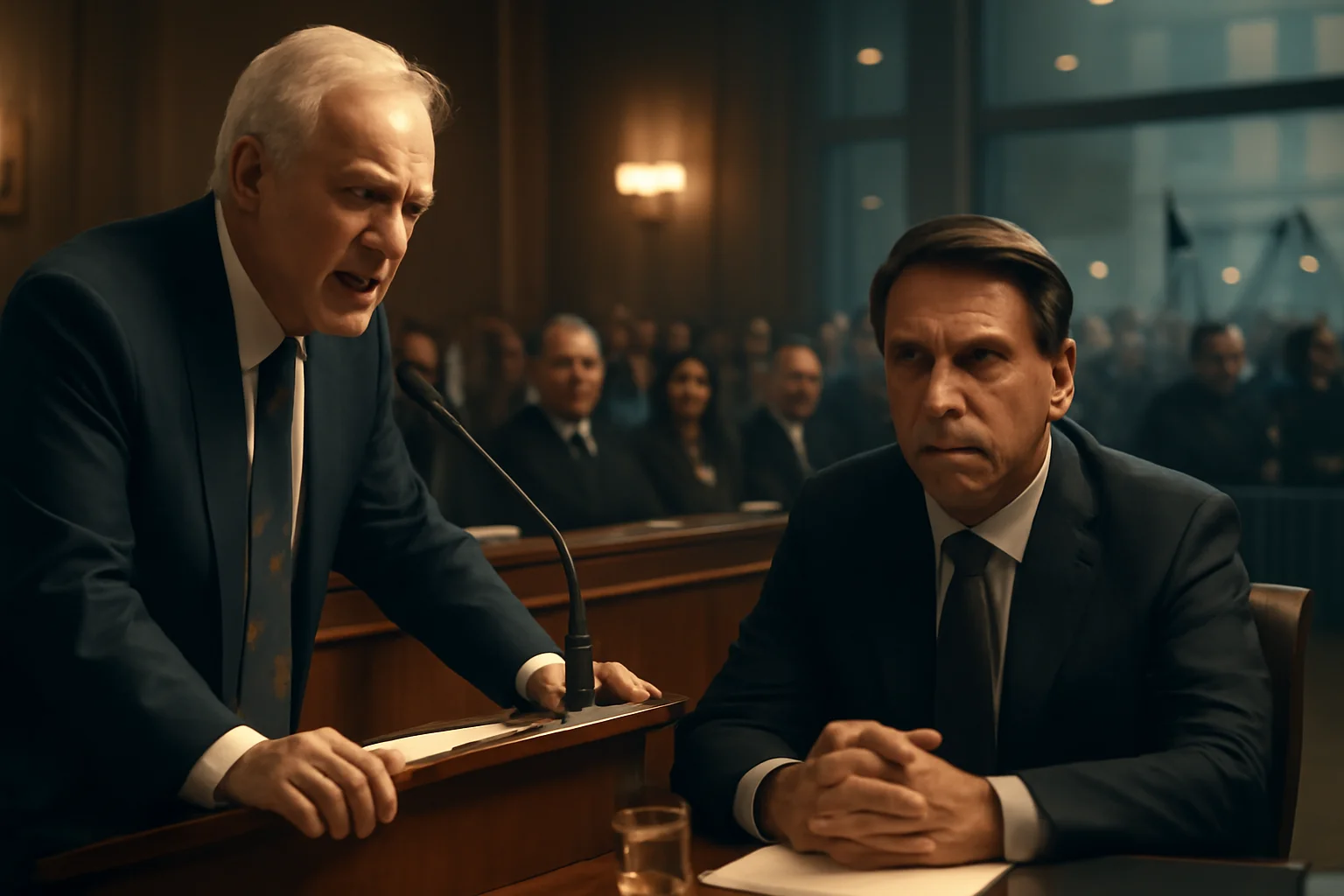
As the Supreme Court convened, the prosecution laid out its case with chilling detail.They alleged that Bolsonaro had systematically, throughout his presidency and after his defeat at the polls, incited insurrection and destabilized the democratic order.The evidence included intercepted communications, financial transactions, and testimony from aides and confidants.Prosecutor-General Paulo Gonet called for a conviction that could keep Bolsonaro behind bars for decades, describing his conduct as “an attack on the democratic rule of law.”Bolsonaro’s legal team fired back, accusing the government of political persecution and vowing to appeal every verdict.The court, undeterred by international pressure or public spectacle, pressed forward with the hearings.Outside, security was tight as crowds gathered, some demanding justice, others pledging loyalty to the embattled ex-president.With each session, the nation’s collective anxiety deepened, as the real possibility of a conviction loomed.Yet even in the midst of the trial, Bolsonaro’s public statements—whether in person or through surrogates—continued to shape the conversation.The world watched, knowing that whatever the verdict, the repercussions would be felt far beyond the courtroom.
Advertisement
10. A Reckoning for Brazil
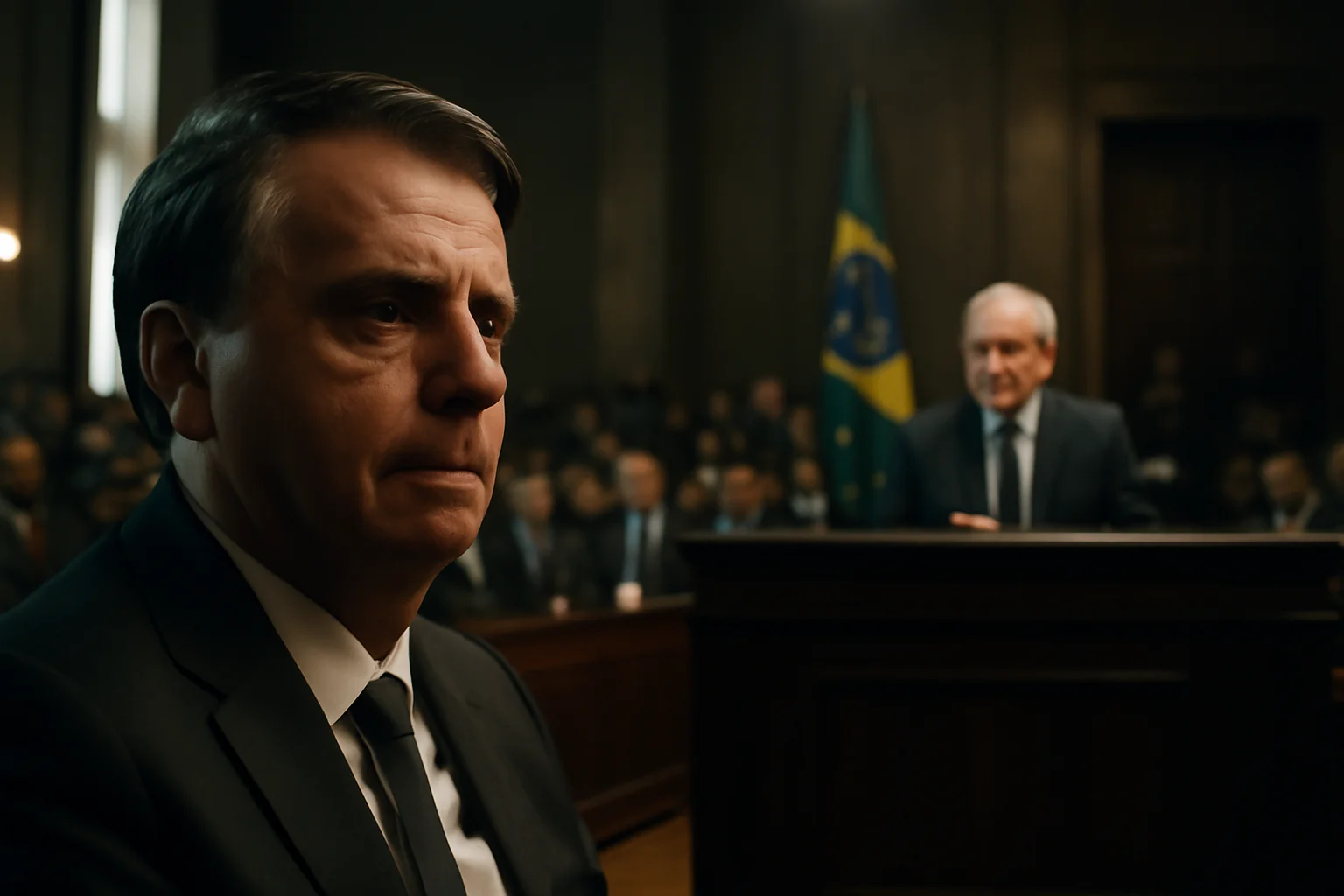
As the final act unfolds, Brazil stands at a crossroads.The trial of Jair Bolsonaro is no longer just about one man; it is a test of institutions, of resilience, and of the nation’s commitment to the rule of law.If found guilty, Bolsonaro could face more than forty years in prison, his political legacy forever stained.For President Lula, the confrontation marks a defining moment, one in which leadership, independence, and courage are put to the ultimate test.The global spotlight has revealed not only the cracks in Brazil’s democracy but also its capacity for renewal.Allies and adversaries alike will draw lessons from the crisis—about the perils of populism, the power of accountability, and the high stakes of global diplomacy.Markets may recover and tariffs may be negotiated away, but the deeper questions of trust and legitimacy will echo for years to come.In the end, Brazil’s reckoning is a story of law, loyalty, and the fragile balance between power and principle.The outcome, uncertain until the final gavel falls, will shape the destiny of a continent—and perhaps, the future of democracy itself.
Advertisement
Advertisement
You May Also Like


